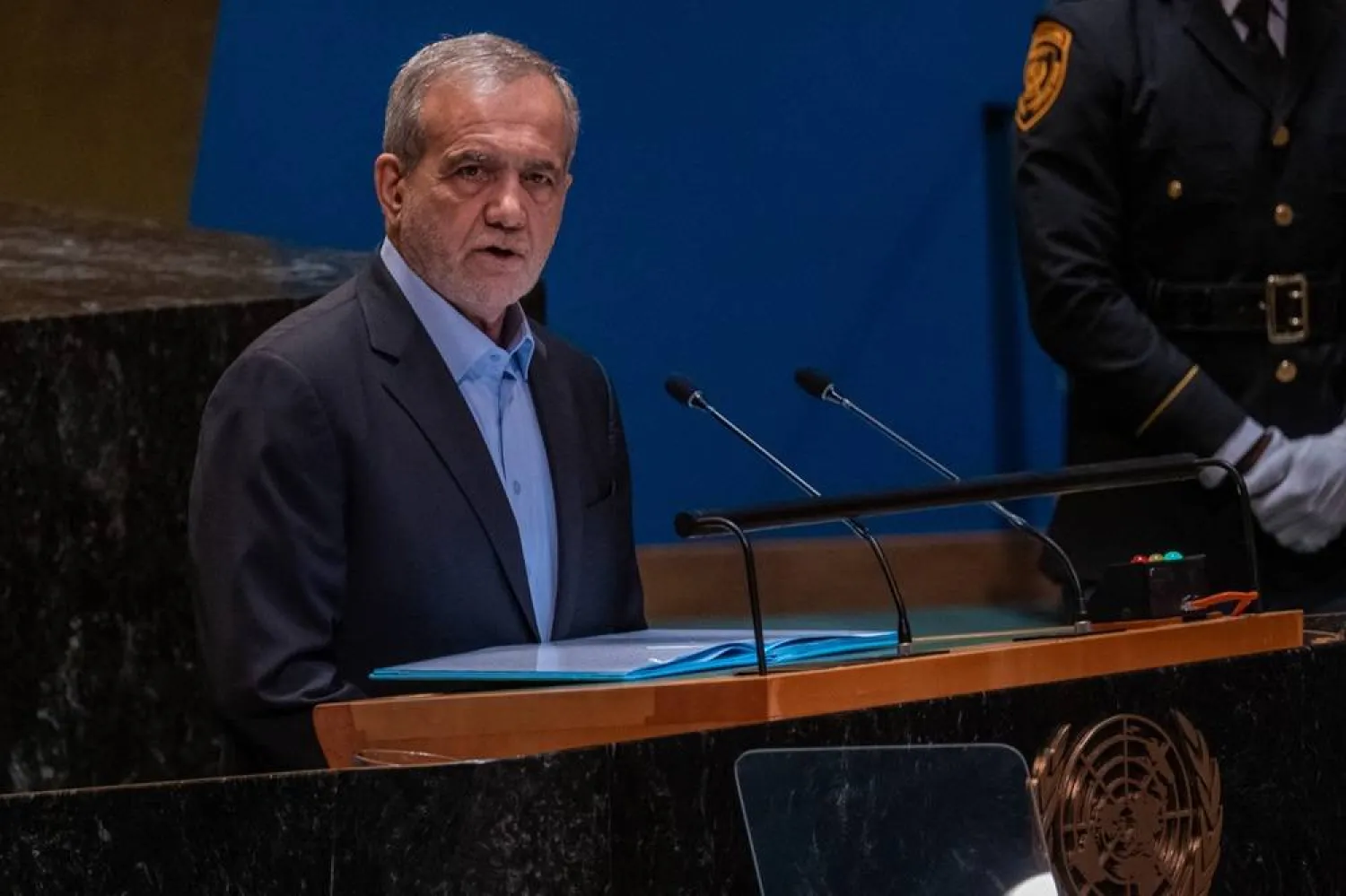Iran is ready to end its nuclear standoff with the West, Iranian President Masoud Pezeshkian told the United Nations General Assembly on Tuesday, while calling for an end to Russia's war in Ukraine through dialogue.
Iran's clerical establishment hopes to see an easing of US sanctions that have crippled the country's economy.
"We are ready to engage with participants of the 2015 nuclear deal. If the deal's commitments are implemented fully and in good faith, dialogue on other issues can follow," Pezeshkian said.
Then-President Donald Trump abandoned the nuclear pact between Tehran and six world powers in 2018 and reimposed tough sanctions on Iran. Efforts to revive the pact have failed.
The deal had capped Iran's uranium enrichment at 3.67% purity and its stockpile of this material at 202.8 kg (447 pounds) - limits Tehran has since far exceeded.
For Britain, France and Germany, who remain party to the nuclear deal, there is a sense that Tehran's leadership will not change course and that a broader accord encompassing the nuclear program and Iran's geopolitical role is unrealistic for now.
The United States, its European allies and Israel accuse Tehran of using its nuclear program as a veil for efforts to try to develop the capability to produce weapons. Iran says its nuclear program is for peaceful purposes only.
Tehran's relations with the West have worsened since the Iranian-backed Hamas group attacked southern Israel on Oct. 7 and as Tehran has increased its support for Russia's war in Ukraine.
Pezeshkian, a relatively moderate politician who took office in August promising a pragmatic foreign policy, criticized Iran's arch-foe Israel for what he called "its genocide in Gaza."
"It is imperative that the international community should immediately ... secure a permanent ceasefire in Gaza and bring an end to the desperate barbarism of Israel in Lebanon, before it engulfs the region and the world," he said.
An Israeli airstrike on Beirut killed a senior commander of the Iranian-backed Hezbollah group in Lebanon on Tuesday as cross-border rocket attacks by both sides increased fears of a full-fledged war.
"We seek peace for all and have no intention of conflict with any country ... Iran opposes war and emphasizes the need for an immediate cessation of military conflict in Ukraine," Pezeshkian said.
Russia has cultivated closer ties with Iran since the start of its war with Ukraine and has said it is preparing to sign a wide-ranging cooperation agreement with Tehran.
Iran has brokered secret talks between Russia and Yemen's Houthi militias to transfer anti-ship missiles to that group, three Western and regional sources said, a development that highlights Tehran's deepening ties to Moscow.









